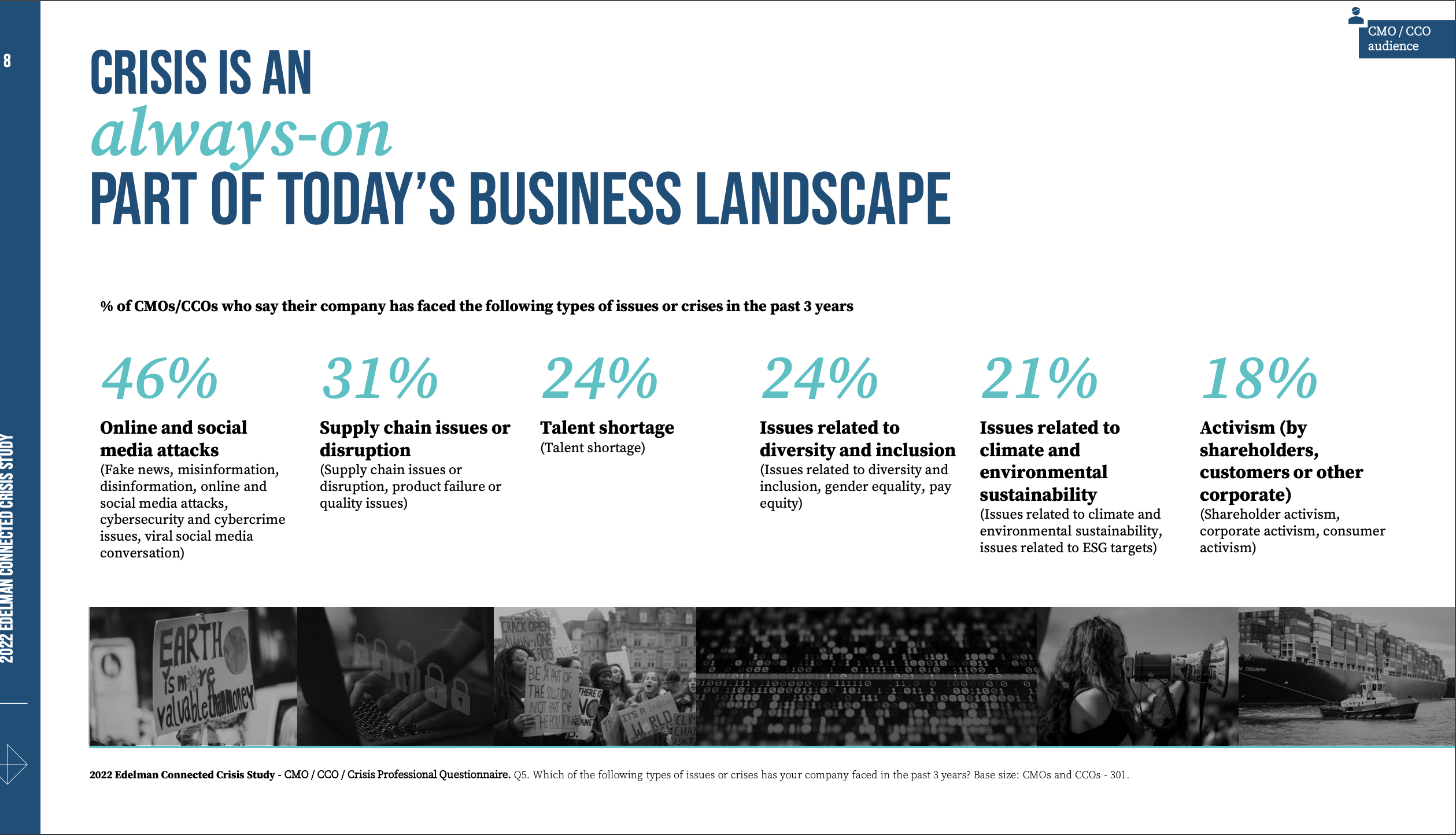
Strategies for Defending Your Brands Online Reputation
In today’s digital world, it’s never been more important to protect your brand reputation. Customers constantly share their experiences with your brand and a single influencer's TikTok video can have a huge impact on your reputation.
According to Edelman's 2022 Connected Crisis study, 46% of CMOs and CCO's have faced online and social media attacks, such as fake news, misinformation, disinformation, online and social media attacks, cybersecurity and cybercrime issues, and viral social media conversations. Any of these issues can directly affect your brand's reputation.

Fortunately, there are steps you can take to protect your brand’s online reputation.
Here are a few tips to get you started:
1. Listen & Monitor Your Online Presence: Make sure to keep an eye on your online presence across every channel. These channels could include social media, review sites, and other online platforms. For many smaller organizations, a simple Google Alert is a great place to start! We've worked with many organizations that use Slack as a way to receive their Google Alerts.
For a larger brand, you may be drowning in social posts, particularly across many different channels. In this case, it helps to focus on the posts that matter such as posts from verified Twitter users. You may also want to focus on larger themes (or narratives) to understand general sentiment, particularly for different audiences.
Enterprise social listening and media monitoring tools, like PeakMetrics can help you discover, quantify, and respond to these more complex social media challenges. As you develop a more complex strategy, be sure to consider the metrics you're tracking in order to ensure positive brand health.
2. Develop a Social Media Response Policy: Develop a social media policy for your organization that outlines how employees should interact with customers online. This will help ensure that your brand is represented in a professional and consistent manner. It also allows you to leverage your employees and advocates in the event of a crisis.
3. Respond & Engage with Your Audience: Engaging with your audience is a great way to build relationships and create a positive reputation. Take the time to respond to comments and questions, and show your customers that you value their feedback.
Be sure to respond quickly to any negative reviews or comments and to develop a strong customer service voice. A proper reputation management process can help ensure that you're always responding within a timely fashion.
You can also use social media to share helpful content and updates about your brand.
As you continue to evolve your social media intelligence strategy, you may find it beneficial to also:
4. Monitor Your Competitors: It’s important to keep an eye on what your competitors are doing online. This will help you stay ahead of the competition and ensure that your brand is always one step ahead.
5. Proactively use data to shape the Narrative: Don’t let others define your brand. Take control of your narrative by creating content that reflects your brand’s values and mission. This is the start of a strong thought leadership strategy and will allow your brand to become a category leader in its market.
Brand reputation management is an essential part of staying competitive in today's online world and protecting your brand. They are required for any brand looking to be represented authentically and will ensure your brand's reputation is aligned to today's digitally native audiences.
Request a free report
Uncover emerging narratives around your brand, industry, and competition.
Sign up for our newsletter
Get the latest updates and publishings from the PeakMetrics investigations team.